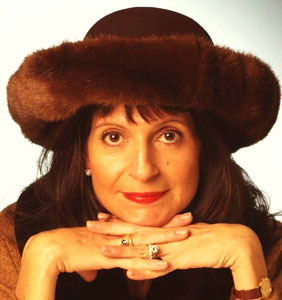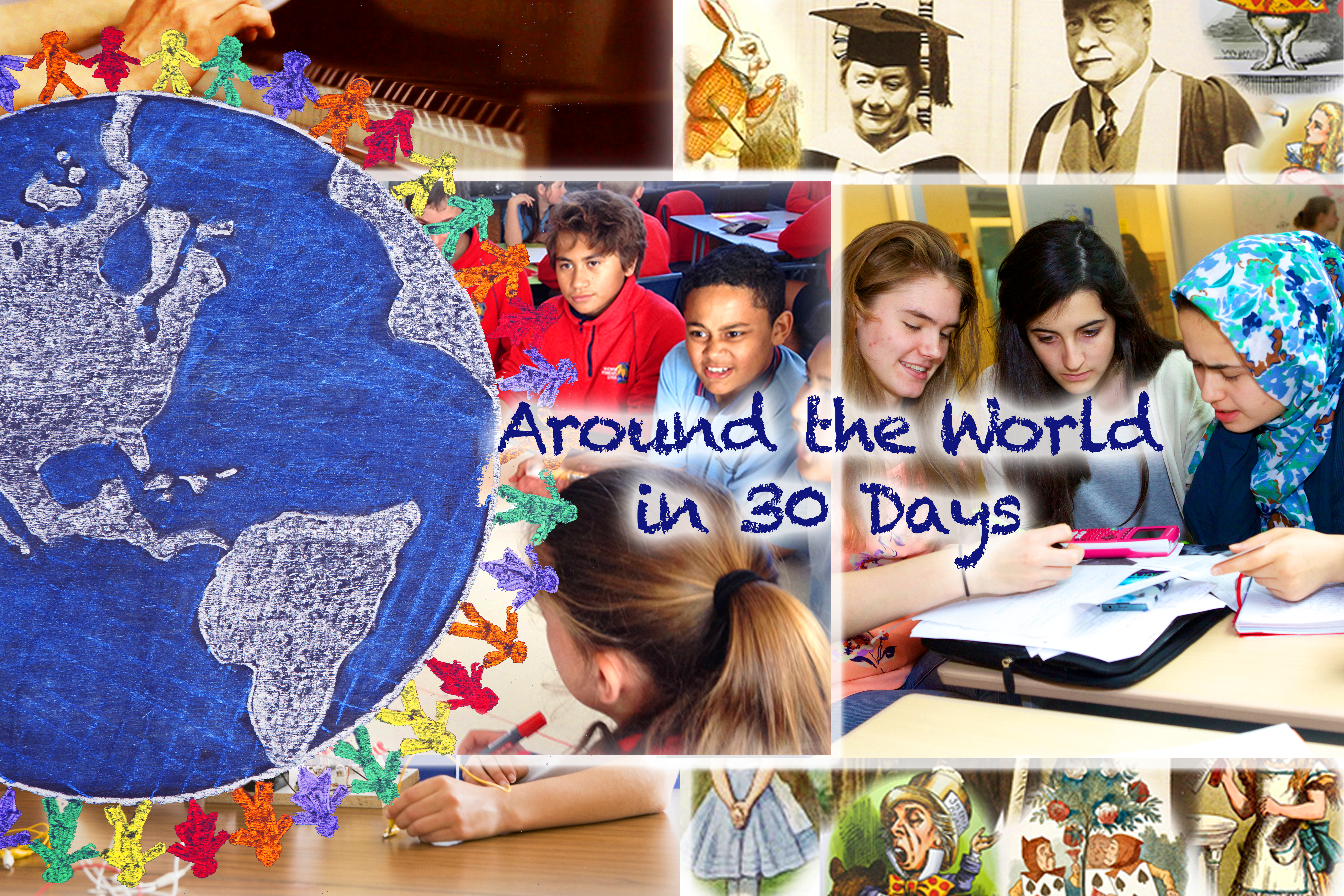What are the biggest trends shaping education? Define learning literacy? How is online education transforming Latin America? Our voices in La recherche globale pour l'éducation ce mois, including Thana Faroq, Gabriel Sanchez Zinny, Tracy Burns, Felix Bernstein, Michael APPEL, Jon Harman and Jim Wynn, shared profound insights into the art world, the growing opportunities afforded by new technology, the lessons learned in observing street life, and strategies to revolutionize education in order to realize in our children the promises of life-long learning. And listen up Silicon Valley – notre Top 12 Global Teachers have also shared their top tips on designing software for the world’s classrooms.
How education will serve a rapidly changing global economy has continually become a more pressing issue. This is no less the case in Latin America. Gabriel Sanchez Zinny addressed the need for educational transformation in newly burgeoning economies: “As Latin America comes down from a decade of growth based on exporting commodities at high world prices, it faces the next challenge: transitioning to a higher-productivity economy.” With growth comes the need for new skills and a new market for post-secondary education. The problem here is the price tag of traditional schools and “privé, lower-cost, largely online options are well positioned to reshape education more fundamentally.”
Talented young artist Felix Bernstein’s debut of Bieber Bathos Elegy at The Whitney Museum of American Art this month is a hybrid work of opera, poésie, cabaret drag, and deconstruction criticism featuring Bernstein as the thinking millenial’s poet trying to figure out where lieth the reality in the labyrinth of life in a digital age. The performance also evokes the theme of mourning and loss. Bernstein allows personal tragedy, the death of his sister, to influence his art. “In your early twenties, you have to go really fast otherwise you miss the boat. And I’m on the boat…but I’m not willing to merely look forward.”
Perhaps the greatest challenge facing global education is rising inequality. Tracy Burns, in her interview about the OECD report, Tendances façonnant l'éducation 2016, clearly outlined the discrepancy: “…the gap between rich and poor is at its highest level in 30 years.” Problems that face these countries are not limited to economic inequality. They include climate change, the expansion of metropolitan life, tight domestic budgets, and changing labor demands. And Burns commented, “…education systems need to create critical thinkers that are able to connect their daily decisions to long-term consequences – not just for themselves but for society as a whole.”
“We have never taught people how to learn. We have confused the teaching of soft skills as teaching learning, but it wasn’t.” This thought from CEO of Imagine Entertainment, Jim Wynn, set the tone for the 16th Education Fast Forward (EFF16) débat. Keynotes including Secretary General of the International Federated Red Cross and Red Crescent Societies, As Sy Elhadj, Senior Education & Technology Policy Specialist and Global Lead for Innovation in Education at the World Bank, Michael APPEL, and ICT and Digital Literacy expert Jon Harman, joined delegates from nations all over the globe to debate how we develop learning capacities, the behaviors we now need as well as the competencies essential to thriving in a globally connected world.
“Les histoires qui traversent les barrières culturelles peuvent décrire les réalités et les apporter de nouvelles perspectives à leurs petits mondes. Ils grandiront avec des valeurs réelles de la tolérance, love and understanding.” Powerful insights from young Yemenese artist Thana Faroq who uses her art “pour éliminer l'ignorance, éduquer et d'inspirer, même en temps de guerre.” In my interview with Thana, she reflected on storytelling through pictures, the role her International Baccalaureate education played in her incredible journey as an artist, and the capacity of the human spirit to prevail.
Tributes continue to flow for the remarkable Joe Bower who unexpectedly passed on in early January. Through his regular contributions to the Top 12 Global Teacher Blogger series each month, Joe inspired me, our entire team and thousands of educators, parents and students around the world. Joe’s legacy lives on in the rich contributions he made to all those who knew him and in his popular blog, “For the Love of Learning.”

Rejoignez-moi et leaders d'opinion de renommée mondiale dont Sir Michael Barber (Royaume-Uni), Dr. Michael Bloquer (États-Unis), Dr. Leon Botstein (États-Unis), Professeur Clay Christensen (États-Unis), Dr. Linda Darling-Hammond (États-Unis), Dr. MadhavChavan (Inde), Le professeur Michael Fullan (Canada), Professeur Howard Gardner (États-Unis), Professeur Andy Hargreaves (États-Unis), Professeur Yvonne Hellman (Pays-Bas), Professeur Kristin Helstad (Norvège), Jean Hendrickson (États-Unis), Professeur Rose Hipkins (Nouvelle-Zélande), Professeur Cornelia Hoogland (Canada), Honorable Jeff Johnson (Canada), Mme. Chantal Kaufmann (Belgique), Dr. EijaKauppinen (Finlande), Le secrétaire d'Etat TapioKosunen (Finlande), Professor Dominique Lafontaine (Belgique), Professeur Hugh Lauder (Royaume-Uni), Seigneur Ken Macdonald (Royaume-Uni), Professeur Geoff Masters (Australie), Professeur Barry McGaw (Australie), Shiv Nadar (Inde), Professeur R. Natarajan (Inde), Dr. PAK NG (Singapour), Dr. Denise Pape (États-Unis), Sridhar Rajagopalan (Inde), Dr. Diane Ravitch (États-Unis), Richard Wilson Riley (États-Unis), Sir Ken Robinson (Royaume-Uni), Professeur Pasi Sahlberg (Finlande), Professeur Manabu Sato (Japon), Andreas Schleicher (PISA, OCDE), Dr. Anthony Seldon (Royaume-Uni), Dr. David Shaffer (États-Unis), Dr. Kirsten immersive, (Norvège), Chancelier Stephen Spahn (États-Unis), Yves Thézé (LyceeFrancais États-Unis), Professeur Charles Ungerleider (Canada), Professeur Tony Wagner (États-Unis), Sir David Watson (Royaume-Uni), Professeur Dylan Wiliam (Royaume-Uni), Dr. Mark Wormald (Royaume-Uni), Professeur Theo Wubbels (Pays-Bas), Professeur Michael Young (Royaume-Uni), et le professeur Zhang Minxuan (Chine) alors qu'ils explorent les grandes questions d'éducation de l'image que toutes les nations doivent faire face aujourd'hui.
La recherche globale pour l'éducation communautaire page
C. M. Rubin est l'auteur de deux séries en ligne largement lecture pour lequel elle a reçu une 2011 Upton Sinclair prix, “La recherche globale pour l'éducation” et “Comment allons-nous savoir?” Elle est également l'auteur de trois livres à succès, Y compris The Real Alice au pays des merveilles, est l'éditeur de CMRubinWorld, et est une fondation perturbateurs Fellow.
Suivez C. M. Rubin sur Twitter: www.twitter.com/@cmrubinworld






Commentaires récents